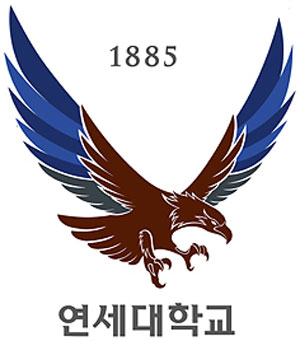Diagnose the relationship between Yonsei and Korea
 | ||
 | ||
The past
The students of Yonsei and Korea Univ. have been full of competitive spirit in almost every way. However, the history of it was especially notable at athletic meets.
The origin of competition between Yonsei and Korea Univ. can be found at the semifinal game of Chosun Dynasty National Soccer Tournament in November, 1927. At that time, Yonsei Univ. was named Yonhi College and Korea Univ. was Posung College. Therefore, the Yon-Ko Fete was called "Yon-Po Fete". After the first match, Yonsei and Korea Univ. met at lots of sports events as many as 84 games from 1927 to 1942. After the restoration of independence in 1945, the formal Yon-Ko Fete began to take place regularly. Starting with soccer and basketball at first, the Yon-Ko Fete was completed with the addition of baseball, rugby, and ice hockey. Since 1965, it settled down into today's program, where whole events are played in two days.
The competition between Yonsei and Korea Univ. began to spread into other area from the sport events.
The present
The competition between both universities can be seen through sports or even cheering. "When we have a game with Yonsei, we are more nervous and practice much harder than other games," says Lim Jun-rok (Soph., Dept. of Physical Education, Korea Univ.), a member of the Korea Univ. ice hockey team. Lee Jung-sub (2nd Sem., The Graduate School of Physical Education), the former captain of the Yonsei ice hockey team, says, "Actually, when we make an annual plan, we usually focus on Korea Univ. much more than others. For this strong competitive spirits we sometimes receive extreme stress." Even in both universities' cheering songs, it is easy to find ridicule against the opposite university. "When I participated in Yon-Ko Fete, I was surprised that both universities make fun of each other even in their cheering songs," says Yoo Kyung-eun (Soph., Dept. of New Media, KyungIn Women's College). Han Won-il (Jr., Dept. of Physics), a present vice captain of Yonsei Yell Leader says, "Many Yonseians like and enjoy these songs making fun of Korea Univ. students. For this reason, we compose these kinds of cheering songs."
Both Yonsei and Korea Univ. students have pride in their departments. Generally, for example, there are thoughts that the Dept. of Law in Korea Univ. is better than that in Yonsei, and the Dept. of Bus. Admin. in Yonsei better than that in Korea. Some argue that each department's cut-line of KSAT (Korea Scholastic Aptitude Test) is much higher than that of the opposite school. For example, seeing the result of the 2004 KSAT, some Korea Univ. students called it into question. They insisted that some departments in Korea are better than that in Yonsei. An argument about KSAT grade is truly representative of competitive awareness about their own departments. The difference between each departments in both universities also appears in other people's consciousness. Min Yoon-hong (Jr., Dept. of Bus. Admin.) says, "Some high school students do not know that there is a Dept. of Law in Yonsei Univ. It can show that the Dept. of Law in Korea Univ. is more famous than that of Yonsei."
"When I think of Yonsei I imagine polish and individualism. It can be found even at structures in campus. While most structures in Korea Univ. are made of stone and look united into one, those in Yonsei are more individual and destitute of consistency," says Hong Kyung-hwa (Soph., Dept. of Korean Lang. & Lit., Korea Univ.). "In cheering culture, we can find each school's character. Yonsei's cheering culture is more complex, polished, and following the fashion; while Korea's is simple, powerful, and even somewhat boorish," says Hong.
In the system of authority, there is also competitive spirit with Korea Univ. Paik Ki-beum (Journal Manager, Div. of International Education and Exchange) says that in Student Exchange Program, Yonsei Univ. is better in scale, but public relations of Korea Univ. is much better than Yonsei Univ. "Korea Univ. gives the foreign professors financial support, their quarters, and newest classrooms, while Yonsei cannot because of the financial problems. In fact, Yonsei has paid no attention to public relations until now, but we feel a necessity for it. To supplement these problems, Yonsei is developing various programs like corporation internship," says Paik.
The reason of competition
Prof. Lee Hoon-koo (Dept. of Psych.) explains that the main reason of competition is an interchange between two universities. "When the Yon-Ko Fete was held for the first time, there were few universities. I think two prestigious universities held the Yon-Ko Fete to cultivate mutual friendship. This festival could contribute to the popularization of Korean sports, and the competition appeared in most areas such as a science, culture, social consciousness, and school features." It may be that cultivating mutual friendship between prestigious universities and making Korean sports popular are ostensible reasons.
Prof. Choi In-choel (Dept. of Psych., Seoul National Univ.) interprets the reason from the psychological perspective. Theoretically, if there is an competitive group, the group identity of oneself becomes stronger. When group identity is strong, members of the group usually have a sense of superiority to another competitive group and compete more with it. "In the case of Yonsei and Korea Univ., they started their competition through athletic matches at first, and later this competitive atmosphere is more strenghten by this society," says Prof. Choi. Therefore, although Yonsei Univ. may try to follow Seoul National Univ., their standard group is Korea Univ. "I think it is a desirable cycle. Their group identity becomes more intense by competitive sprit. This is why Yonsei or Korea Univ. students have a stronger sense of belonging than any other university students," says Prof. Choi.
Some people point out that competition between Yonsei and Korea Univ. is oriented from their elitism. They insist that by holding special event only for the two universities, Yonsei and Korea Univ. students feel superiority and elite consciousness in this society. About these opinions, Kang Min-jung says, "It is just a traditional festival that is similar with other universities' festivals and we can have important experiences through this. I would like to say that it is our privilege." On the other hand, Hong Kyung-hwa says that elitism overflows in Korea and Yonsei Univ. students. "When SungKyunKwan Univ. and HanYang Univ. planned to make Sung-Han Fete, there were some students that ridiculed the school authorities. They said that the school authorities are making a Sung-Han Fete just after Yon-Ko Fete to join the group of prestigious universities. To produce a leader of Korean society in the near future, both university students must abandon their elitism."
Impact of the competition
Competing with Korea Univ., most Yonseians have felt pride in their position as a member of Yonsei Univ. "From my university days, Seoul National Univ.'s individuals could not unite into one, while Yonsei and Korea Univ. were strongly united," says Prof. Lee Hoon-koo. Now, the universities' scales are so big that it is somewhat hard to have a sense of belonging. However, in this situation, the competition between Yonsei and Korea Univ. serves a role to unite students into one and assures that they belong to their school. "Yon-Ko Fete is the festival that only Yonsei and Korea Univ. students can have, so they may be able to have special experience by this and learn a way to be one," says Kang Min-jung. Lee Ha-na (Soph., Dept. of Secretary, Suwon Women? College) says, "Sometimes I get irritated with their festival, but I usually feel such as big event is enviable. Yon-Ko Fete is one of the reasons that I envy Yonseians."
The competition can also be a basis of development. Prof. Choi says, "I think the competition between Yonsei and Korea has advantages rather than bad effects. In any field, proper competition promotes development. I hope other universities make their own competitor such as Yonsei and Korea Univ." Kwon Min-sun (Sr., Dept. of Physical Education), a present captain of Yonsei Yell Leader says, "The cheering song that makes fun of Korea Univ. is just a cheer. This kind of competition in this degree can make both universities more stimulated and developed. Seeing it seriously raises an emotional fight between the two groups of university students."
From a the wide point of view, some explain that the competition between Yonsei and Korea Univ. is a stimulant to all Korean universities. "It is still obvious that Yonsei and Korea Univ. are prestigious universities, so many other universities seek to follow them. If Yonsei and Korea compete with each other and develop, other universities are also stimulated and make more efforts to develop," says Chung Sang-won, (`68, Dept. of English Lang. & Lit., Korea Univ.). Lee Jin-myung (Soph., Dept. of Econ., Seoul National Univ.) also says, "It may be a problem for other universities that they do not have a traditional competition such as a relationship between Yonsei and Korea. All Korean universities need competition that helps them to develop."
| "The biggest enemy that we should fight is not others, but ourselves." - Miguel de Carvantes Saavedra - |
However, the competition between Yonsei and Korea Univ. have a negative effect in some ways. Hong Kyung-hwa points out that an antagonistic relationship between both universities can be more severe if competition is serious. "Yonsei and Korea Univ. students say that they are partners, but they seem to consider each other as their enemy. The students of each school students think that they must win their rival unconditionally." For example, both universities are sensitive to the number of successful candidates for state examination compared to each other.
Besides, other university students can feel the sense of alienation. "Yonsei and Korea Univ. students sometimes think as if there are only their school in Korea. It seems that other universities are excluded from their mind," says Kim Ji-hea (Soph., Dept. of Computer, Ewha Womans Univ.). Noh Hyun-ki (Sr., Dept. of Estern Philosophy, Sung KyunKwan Univ.) also says, "Every time when Yon-Ko Fete takes place, Yonsei and Korea Univ. occupy Shinchon as their own area. It is a problem for residents and general passersbys that they fight each other and obstruct streets."
In society, there are lots of people who have a negative view about the Yon-Ko Fete. Prof. Lee analyses the reason as the following. "When the Yon-Ko Fete was first held, there were few universities. Then Yonsei and Korea were the wish of people. Besides, since there were few televisions and broadcasting companies, people could not watch sports game well. Therefore, Yon-Ko Fete was the only and most popular sport in Korean society." However, nowadays there are numerous universities and lots of television channels. People are not interested in Yon-Ko Fete any longer and they do not even understand why Yonsei and Korea Univ. hold the special festival. "Yon-Ko Fete has not followed the change of people's thoughts," says Prof. Lee.
For a desirable relationship
It is clear that competition between Yonsei and Korea Univ. has both positive and negative roles. For making competition more helpful to not only both universities, but also Korea society, both universities should do their best to build up a sound atmosphere. Prof. Choi advised that the competition between Yonsei and Korea. should be widened to science and study, not just staying in sports.
Interchange through competition is also important. According to Hwang Chang-kyu, Vice-president of SamSung, Sony is not their enemy. He thinks, by competition Samsung can grow, and rather the enemy is within Samsung. Continuos self-examining is more important than comparison with competitors. The relationship of Yonsei and Korea Univ. is the same as that. Self-examining and stimulating oppsite university can make both universities more developed and it is a real competition. Korea Univ. is not a contender of Yonsei any longer. Now, Yonseians should consider students of Korea Univ. as companions, competing with the world together.

